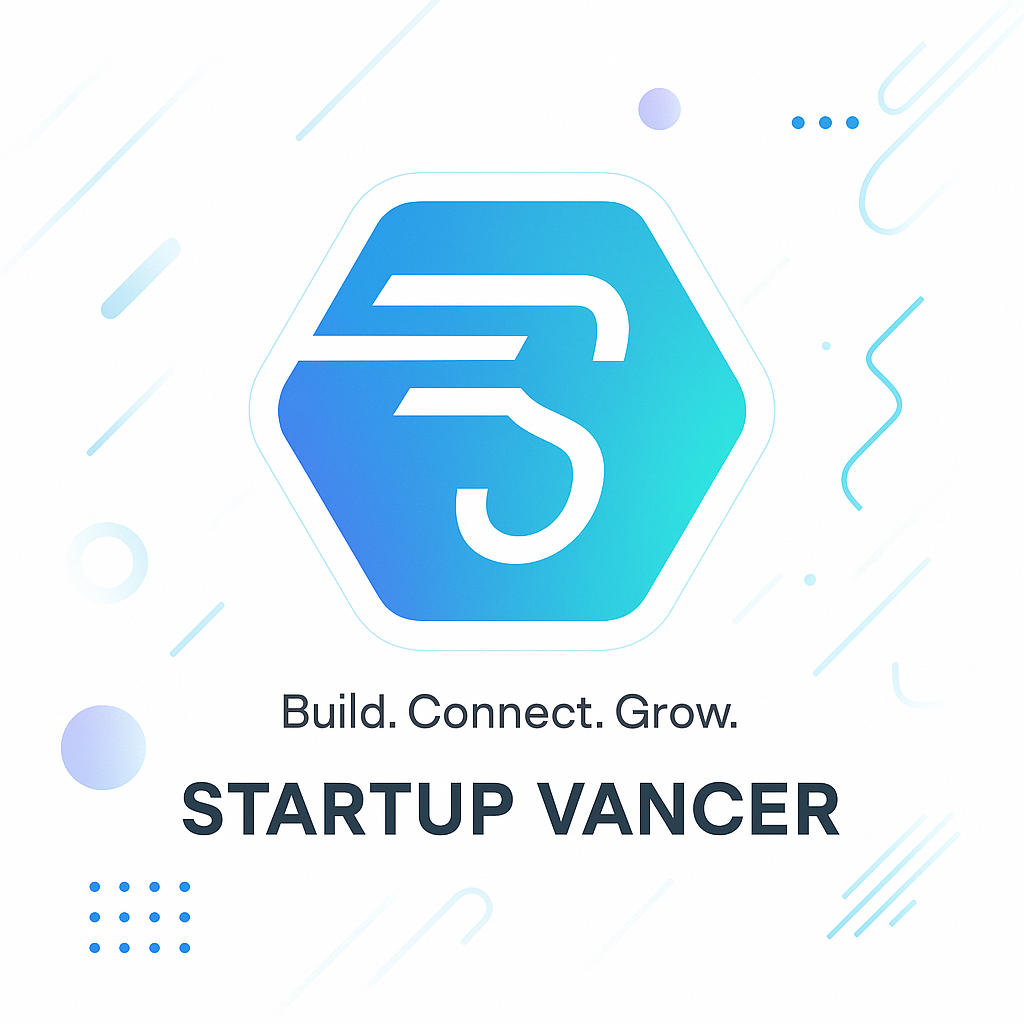
When embarking on your journey as an aspiring founder, having access to the right startup resources toolkit can make all the difference. You’ll find that cultivating a solid foundation is essential, and this guide will introduce you to a carefully curated founder resource list that highlights the best online platforms and tools available. From mentorship opportunities that can provide valuable insights to startup online tools for idea validation, you’ll explore each resource that empowers your entrepreneurial learning. Additionally, we will dive into early-stage funding databases that can help turn your vision into reality. Engaging with these startup community resources means joining a vibrant founder platform where you can connect, learn, and grow alongside like-minded innovators. Let’s get started and equip you with the resources needed to succeed in today’s competitive landscape.
Resource: Top Mentorship Platforms
As an aspiring founder, surrounding yourself with the right knowledge and experience is crucial in being able to avoid common pitfalls and accelerate your startup’s journey. One of the most effective ways to gain insights, guidance, and practical advice is through mentorship. Luckily, today’s digital landscape is brimming with founder platform options designed to connect you with seasoned entrepreneurs, advisors, and industry experts who can help steer your startup in the right direction. Below, you will find a curated list of the top mentorship platforms adept at fostering growth and learning for aspiring founders.
1. SCORE
SCORE, a nonprofit association, offers a network of volunteer mentors who provide free and confidential business mentoring. With a focus on small businesses and startups, SCORE fields a vast pool of knowledge accumulated over decades in various industries. You can even request a mentor based on specific business needs, allowing you to receive tailored support. As a user, you can leverage their workshops, webinars, and resource materials which can also be beneficial to your entrepreneurial learning journey.
2. Founder Institute
The Founder Institute is a global pre-seed accelerator program aimed at aspiring entrepreneurs. It pairs budding founders with experienced mentors who provide guidance throughout the startup formation process. The platform emphasizes building a network and gaining valuable feedback on business ideas. Moreover, it offers various workshops and events where you can meet mentors and like-minded founders in person or virtually, enabling meaningful connections that often lead to lasting relationships.
3. MicroMentor
MicroMentor is an online platform that connects entrepreneurs with business volunteers who provide advice and mentorship. This community-driven platform is all about fostering connections and collaboration. Moreover, through MicroMentor, you can not only access mentorship but also share your knowledge by becoming a mentor yourself. Both aspects help in building a stronger startup community where founders support each other in their entrepreneurial endeavors. The technology is user-friendly, ensuring that you can quickly navigate profiles and find mentors matching your interests and needs.
4. LinkedIn
While LinkedIn might not sound like a traditional mentorship platform, it is an invaluable resource for aspiring founders. You can utilize LinkedIn to search for experienced professionals in your field of interest, engage with their content, and actually reach out to establish relationships. By joining relevant groups and discussions, as well as by using the LinkedIn Learning feature, you can gain insights, recommendations, and a wealth of knowledge from professionals willing to share their expertise.
Comparison Table of Mentorship Platforms
| Platform | Cost | Focus Area | Unique Feature |
|---|---|---|---|
| SCORE | Free | Small businesses | Extensive network of experienced mentors |
| Founder Institute | Varies | Startups | Comprehensive accelerator program |
| MicroMentor | Free | Various industries | Community-driven mentorship |
| Free | Professional networking | Vast array of industry connections |
Final Thoughts
Engaging with the right mentorship platforms can help shape your startup journey more effectively. With access to experienced entrepreneurs via these platforms, you can gain insights that textbooks simply cannot provide. Whether you choose SCORE, Founder Institute, MicroMentor, or even LinkedIn, the key is to take that first step and actively reach out to mentors who resonate with your visions and aspirations. The journey of a startup founder can be incredibly daunting, but in the supportive network of a strong mentor, you can find the guidance and resources necessary to thrive. Don’t forget to explore other startup community resources along the way that can further augment your entrepreneurial toolkit!

Resource: Idea Validation Tools
As an aspiring founder, the path from conception to reality for your startup idea can feel overwhelming. The first crucial step involves thoroughly validating your concept to ensure it meets the needs of your target market. Fortunately, various idea validation tools can streamline this process, providing insights and feedback that are indispensable for shaping a successful business venture. This section will explore several effective tools that help you assess your idea’s viability and market fit before investing substantial time and resources.
Importance of Idea Validation
Before diving into the intricacies of tools available, why is idea validation so essential? Simply put, validating your idea reduces the risks associated with launching a startup. By confirming that there is actual market demand for your solution, you can better allocate your resources, refine your offerings, and create a robust business model. Skipping this vital step could lead to wasted efforts and investments, leaving you with a product that no one wants.
Recommended Idea Validation Tools
Here are some of the best tools available to help you validate your startup ideas effectively:
| Tool Name | Description | Features | Pricing |
|---|---|---|---|
| Lean Canvas | A one-page business plan template that helps you visualize all the essential components of your idea | – Visualizes assumptions – Concise format – Iterative approach | Free |
| SurveyMonkey | A survey tool to gather customer feedback on your idea | – Customizable surveys – Analyzes responses easily – Various question types | Free tier available, plans from $25/month |
| Typeform | A tool for creating interactive forms and surveys to engage potential customers | – Sleek design – Customizable templates – Real-time analytics | Free tier available, plans from $35/month |
| Validately | A user testing platform that connects you with potential customers for feedback | – Live interviews – Video recordings – A/B testing capabilities | Pricing available upon request |
| Product Hunt | A platform to launch products and test ideas with an early adopter community | – Gain immediate feedback – Diverse user base – Opportunity for visibility and networking | Free |
Explanation of Each Tool
Lean Canvas
Using Lean Canvas allows you to condense your business idea into a one-page visual diagram. This tool prompts you to outline your value propositions, customer segments, channels, and revenue streams systematically. As a result, you can identify assumptions and risks faster, enabling you to prioritize what needs validation. This approach facilitates iterative testing and metrics for success, making it easier to pivot your concept when necessary.
SurveyMonkey
SurveyMonkey permits you to craft tailored surveys that can capture essential feedback from potential customers. By asking direct questions related to your business idea, you can assess consumer interest, willingness to pay, and identify key features they value. The robust analytics features enable you to analyze trends from your responses easily, translating qualitative insights into quantifiable data, which is essential for decision-making.
Typeform
Similar to SurveyMonkey, Typeform enhances user engagement by allowing you to create well-design interactive surveys and forms. The user-friendly interface provides a seamless experience for respondents, which often leads to higher response rates. Its integration options allow for easy data collection and analysis, providing valuable insights that can help refine your offering.
Validately
With Validately, you can conduct live user interviews and tests with potential customers. This platform allows you to gather direct insights on user experience and perceptions about your startup’s concept. You can also run A/B tests to compare different versions of your product features, gaining clarity on customer preferences before finalizing your development roadmap.
Product Hunt
Product Hunt serves as a vibrant community for founders to launch and promote their ideas. Engaging with this audience can provide immediate feedback and validation from users who are looking for the next great product. By monitoring user reactions and comments, you can gauge market demand while simultaneously building awareness for your startup.
Conclusion
Utilizing idea validation tools is vital in the early stages of your entrepreneurial journey. By leveraging platforms like Lean Canvas, SurveyMonkey, Typeform, Validately, and Product Hunt, you can systematically test and refine your startup ideas based on actual market feedback. This comprehensive approach not only empowers you to mitigate risks but also aligns your product with consumer needs, paving the way for a more successful launch and sustainable growth.
Resource: Early-Stage Funding Databases
Navigating the world of early-stage funding can be overwhelming for aspiring founders. Fortunately, various early-stage funding databases are available to help you streamline your search for potential investors, grants, and other financial opportunities. These platforms serve as centralized repositories, providing you with valuable information to find the right funding to take your startup to the next level.
1. Crunchbase
One of the leading platforms in the funding landscape is Crunchbase. This comprehensive database allows you to search for venture capital firms, angel investors, and startup funding rounds worldwide. You can filter your search based on industry, location, and funding stage.
| Feature | Details |
|---|---|
| Types of Data | Funding rounds, investor profiles, startup details |
| Costs | Free basic access, but premium options available for advanced features |
| Best For | Startups seeking to gather insights about competitors and potential investors |
Using Crunchbase effectively allows you to research profiles of successful companies and analyze their funding strategies, which can be invaluable for your pitch preparation.
2. AngelList
If you’re a founder looking to connect directly with investors, AngelList is an indispensable resource. It’s not just a job board but also a fundraising platform where startups can gain visibility and attract seed funding. Here, you can create a detailed profile that showcases your team, vision, and product.
| Feature | Details |
|---|---|
| Types of Data | Startup profiles, investor connections, funding options |
| Costs | Free to create a profile, optional fees for premium services |
| Best For | Startups looking for early adopters and feedback along with funding |
Connecting with investors on AngelList can lead to meaningful discussions about your startup’s future. The transparency found on this platform helps in establishing trustworthy relationships.
3. SeedInvest
As a highly curated funding platform, SeedInvest connects startups with accredited investors. This platform offers a unique opportunity for founders to present their company to a robust network of investors actively looking for promising ventures to fund.
| Feature | Details |
|---|---|
| Types of Data | Fundraising campaigns, investor insights, startup financials |
| Costs | Startup submission fees, percentage taken from successful raises |
| Best For | Startups aiming for equity crowdfunding and investment opportunities from a vetted group of investors |
Not only does SeedInvest assist in raising funds, but it also provides guidance on regulatory compliance during the fundraising process, making it a comprehensive choice for startup founders.
4. PitchBook
For a more analytical approach to early-stage funding, PitchBook strikes the right balance between data analytics and user experience. This platform allows you to track private equity and venture capital investments, providing insight into industry trends.
| Feature | Details |
|---|---|
| Types of Data | Detailed investment trends, company valuations, fund performance |
| Costs | Subscription-based, price varies based on access level |
| Best For | Founders who want in-depth market research and data analysis |
Though more costly, PitchBook offers invaluable insights that can help shape your funding strategy and prepare you for meaningful conversations with potential investors.
5. StartupFunding.co
StartupFunding.co is a beginner-friendly platform designed specifically for early-stage startups. It provides an extensive database of grants, accelerators, and funding opportunities worldwide.
| Feature | Details |
|---|---|
| Types of Data | Grants, accelerators, competitions |
| Costs | Free to use |
| Best For | Startups looking for diverse funding options beyond traditional capital |
With its user-friendly interface, StartupFunding.co makes it easy to search for funding opportunities that align with your startup’s goals and stage.
In today’s competitive landscape, utilizing early-stage funding databases is an essential strategy for aspiring founders. By leveraging these platforms, you can save time, refine your approach to funding, and increase your chances of successfully securing investment. Whether you prefer the direct connection of AngelList, the comprehensive insights from PitchBook, or the generous offerings of Crunchbase, these resources will undoubtedly empower your entrepreneurial journey. Embrace the available options to craft your unique funding strategy and support your startup’s growth on the path to success.
Frequently Asked Questions
What types of resources are available for aspiring startup founders?
As an aspiring startup founder, you have access to a variety of resources tailored to help you succeed. Resources range from comprehensive libraries of guides and templates specifically designed for startups, including pitch deck templates and investor update templates. Additionally, various platforms provide webinars, online courses, and essential tools such as financial models, tax calculators, and project management software. Notable sources include the Startup Q&A from Kruze Consulting and the Entrepreneur DNA assessment tool, both aimed at enhancing your business skills and understanding of essential startup operations.
How can I leverage free resources to grow my startup?
Leveraging free resources can significantly impact your startup’s growth trajectory. For instance, taking advantage of free online courses from platforms like HubSpot Academy can improve your team’s skills in marketing, sales, and customer relations. Additionally, using tools such as Google Analytics for performance tracking or HubSpot’s CRM can enhance your operational efficiency. Joining accelerators or utilizing platforms like Amazon’s Small Business Academy provides networking opportunities and expert insights that can help validate your business idea and connect you with potential investors.
What is the importance of using an innovation toolkit for startup founders?
Utilizing an innovation toolkit is crucial for startup founders as it equips you with the knowledge, skills, and resources necessary to navigate the complex startup landscape. Such a toolkit includes templates for creating business plans, financial models, and effective pitch decks that can aid in securing funding. It also encompasses access to vital data analytics tools to measure growth and performance. By integrating these tools, founders can streamline operations, enhance productivity, and strategically position their ventures in the market.






